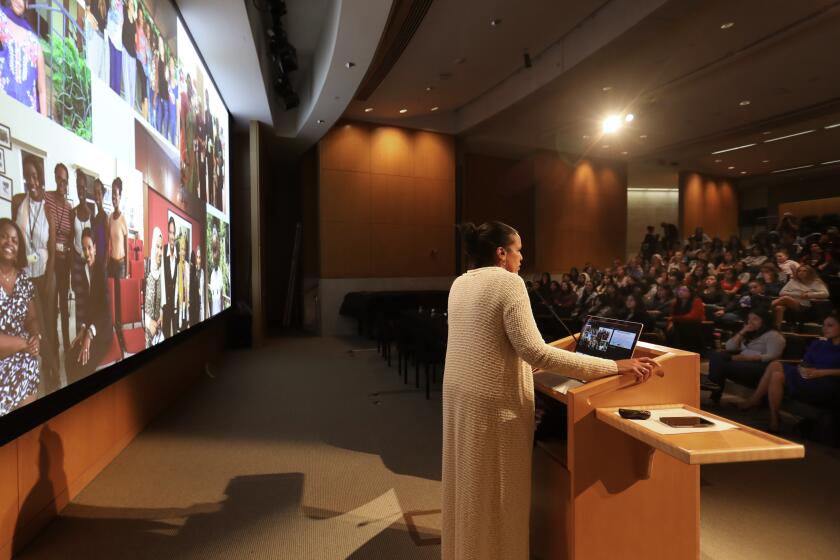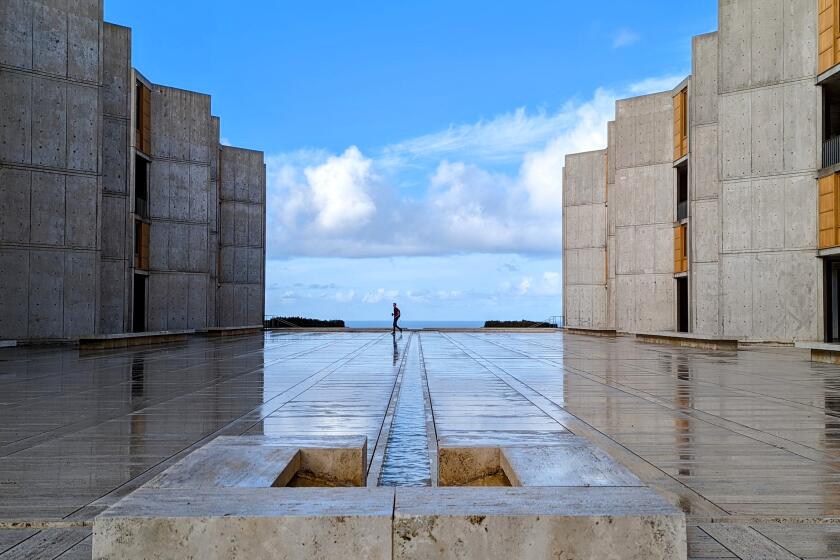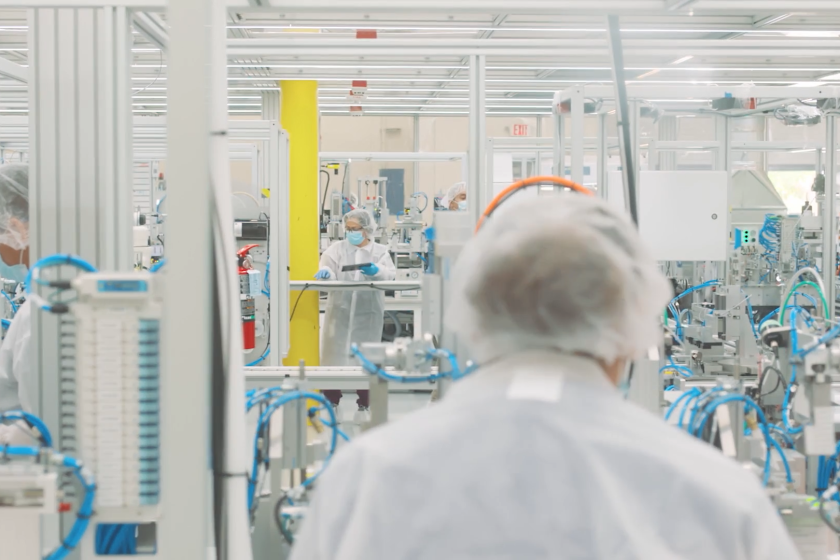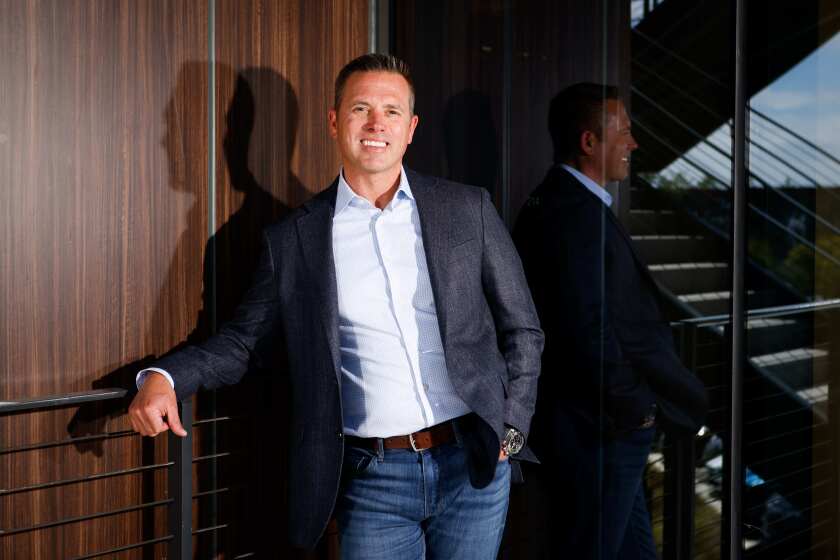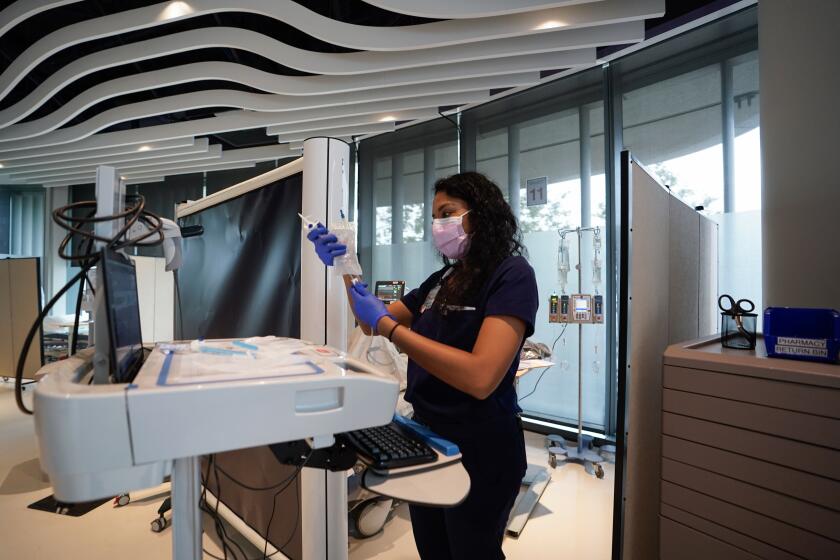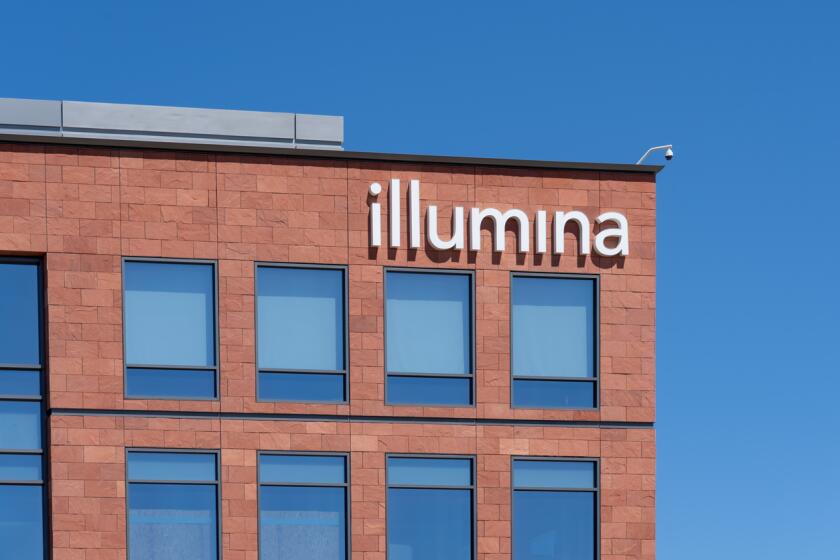Focus: San Diego’s science allure draws in big partners
In San Diego County’s biomedical academic centers and businesses, the research advances keep on coming.
So do the large drug and medical-device companies, seeking to capitalize on the fruits of this knowledge. Last week’s BIO 2017 convention in San Diego highlighted these advances, such as a breakthrough in producing biofuel from algae that was engineered by Synthetic Genomics in La Jolla.
And the history of these breakthroughs goes back decades, bringing in billions of dollars from major pharmaceutical companies. In recent years:
- multiple sclerosis drug developer Receptos was purchased for $7.3 billion by Celgene
- instrumentation and research supply giant Life Technologies in Carlsbad was sold to Thermo Fisher Scientific for $13.6 billion
- and medical equipment maker CareFusion reaped $12.2 billion for its shareholders in a purchase by Becton, Dickenson & Co.
Such deals are the fruits of years of biomedical research in the San Diego region.
Locally produced blockbuster products include Humira for rheumatoid arthritis and other autoimmune diseases; Rituxan, the cancer drug that also treats autoimmune diseases; and the PSA screening test for prostate cancer. On the instrumentation side, the world’s most powerful DNA sequencers come from Illumina in San Diego.
Big medical corporations keep on striking partnerships, mergers and other agreements with local life-science institutions that may one day mature into blockbuster purchases.
Some of these companies have taken their San Diego ties deeper by establishing a major physical presence in the area. For example:
- Last week, Eli Lilly & Co. held its grand opening for an expanded research center on Campus Point Drive near Scripps Memorial Hospital La Jolla. Now with 300,000 square feet, the center has doubled in size. Lilly CEO David Ricks took part in the opening ceremony.
- Takeda Pharmaceutical is building a new center for its research activities in San Diego. The building in the UTC area will unite two operations now housed separately. It will include a company cafeteria designed to be easily accessible to others in the life-science community.
- Thermo Fisher has turned the headquarters of Life Technologies into its own branch in Carlsbad, with about 1,500 employees. In April 2013, Life Technologies employed about 1,200 people in Carlsbad.
Other life-science companies with a significant footprint in San Diego include Pfizer, Novartis, Vertex Pharmaceuticals and Celgene. Each of these pharmaceutical businesses employs a few hundred people at its local site.
Moreover, the local units are collaborating with one another.
Last week, the U.S. Food and Drug Administration approved a genetic test for non-small cell lung cancer developed by Thermo Fisher in partnership with San Diego’s Pfizer group and Novartis. The test simultaneously screens tumor samples for biomarkers associated with three FDA-approved non-small cell lung cancer drugs from Pfizer, Novartis and AstraZeneca.
“Our FDA approval … of the first next-generation sequencing-based test designed to expedite targeted therapy selection for non-small cell lung cancer patients from weeks to a few days speaks to the value of having a presence in the San Diego region,” said Mark Stevenson, president of Life Sciences Solutions for Thermo Fisher Scientific. “This breakthrough test is the result of our collaboration with San Diego’s Pfizer group in an effort to drive genomics-based precision medicine.”
What follows is a look at some of these companies, how they established their presence here and what keeps them around.
Eli Lilly
The Indianapolis-based drug company was the first to invest in San Diego’s biotechnology industry, with its $400 million purchase of Hybritech, San Diego’s original biotech company, in 1986.
That purchase didn’t work out so well for Lilly, which eventually sold Hybritech. However, its 2003 purchase of Applied Molecular Evolution, also for $400 million had a happier ending. AME became the core of the Lilly Biotechnology Center, established in 2009.
The center’s research produced the psoriasis drug Taltz, (ixekizumab), a monoclonal antibiody approved by the Food and Drug Administration last year.
Another monoclonal drug from Lilly’s biotechnology center, galcanezumab, treats migraine. In March, Lilly announced that the drug had successfully completed three Phase 3 clinical studies. The company said it intends to file an application to sell galcanezumab in the second half of this year.
The center’s expansion, at a cost of $90 million, adds automated organic chemical synthesis to Lilly’s capabilities in San Diego, said Thomas Bumol, head of the center. This synthesis is in a unit called the Lilly Life Science Studio.
The studio “will allow researchers across the globe to remotely design synthesize and screen investigational molecules in ways previously thought to be impossible,” Bumol said.
”This expansion joins the world class structural biology capabilities already here which today have helped the overall innovation portfolio of small and large molecules for Lilly.”
“So by merging our biotechnology and next generation chemistry capabilities in San Diego, we believe we’ve created a unique world-class collaboration site for pharmaceutical research and development.”
Takeda Pharmaceutical
Like Eli Lilly, Takeda also came to San Diego by acquiring a local biotechnology company, Syrrx, in 2005. That became Takeda California, which handles about 20 percent of all the company’s research. About 250 people now work out of Takeda California, said David Weitz, head of the unit. Research is focused on three areas, oncology, gastrointestinal and central nervous system diseases.
Takeda has just signed a contract for constructing a new 165,000 square-foot building in the UTC area to consolidate Takeda’s two existing locations in San Diego, Weitz said. The new location will hold about 300 employees. The target completion date is January 2019.
The parcel now contains the manufacturing plant for Amylin Pharmaceuticals, a company purchased in 2012 by Bristol Myers Squibb for a total of $7 billion. BMS then shut down Amylin’s San Diego operations. That plant will be torn down so Takeda can construct a build-to-suit facility on the seven-acre site, Weitz said.
“One of the really key features of this building is our intention to make it an external innovation and collaboration hub for San Diego,” Weitz said. “Our cafeteria and all-employees space is actually outside security purposely. so that we can welcome the community in for events.”
“It’s this balance between it being our space and something we can really have our signature on, but at the same time be really open to the public,” he said. “It’s pretty casual. You don’t have to go through badging, there’s far less escorting. It will lower the barrier to people just getting together, sit down and have a coffee and chat.”
Johnson & Johnson
A huge drug, medical device and consumer goods company, Johnson & Johnson hardly needs introduction. It’s also famous for its biotechnology deals.
In 2013, Johnson & Johnson agreed to buy prostate cancer drug developer Aragon Pharmaceuticals for up to $1 billion, including $650 million cash upfront.
But the maker of Tylenol, Band-Aids and Neutrogena beauty products also operates units whose ties to the parent company aren’t as widely known.
One of those units, Janssen Pharmaceutical Companies, operates a research and development arm in San Diego, employing about 370 people and 100 contractors.
The unit’s 300,000 square-foot-building on Torrey Pines Mesa also houses JLABS, a business incubator that occupies about 45,000 square feet. JLABS was established in 2012 in San Diego as a means of keeping Janssen connected to sources of new ideas.
JLABS has grown from one location in San Diego to a total of nine, said Melinda Richter, head of Johnson & Johnson Innovation at JLABS. Tenant companies get logistical support, and can strike deals with Janssen, if both agree. Companies are free to seek alliances elsewhere.
“San Diego is a primary hub for us for talent, whether it’s our internal R&D program or our external R&D partnerships,” Richter said.
Vertex Pharmaceuticals
One of the country’s most highly valued biotech companies, Boston-based Vertex Pharmaceuticals is finishing its own expansion of a San Diego research center.
A new building will more than double the facility’s size on Torrey Pines Mesa from 80,000 to 170,000 square feet, a project scheduled to be done this year. On June 22, the contractor, BNB Builders, held a “topping out” ceremony for the nearly completed project.
The newly expanded center will house 250 employees, up from its current capacity of 180.
Vertex received nationwide attention on Jan. 30, 2015, when President Barack Obama outlined his Precision Medicine Initiative. Among those attending was Bill Elder Jr., a medical student who takes Kalydeco, a drug for cystic fibrosis discovered at the San Diego unit of Vertex.
Science Playlist

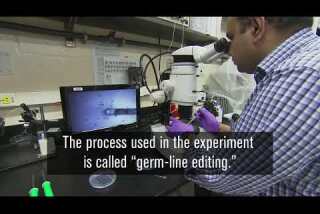
In a first, scientists rid human embryos of a potentially fatal gene mutation by editing their DNA

10 interesting facts about Mars

Kids can add years to your life

LA 90: SpaceX launches recycled rocket
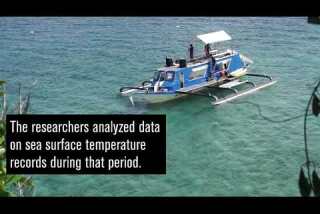
Ocean temperatures warming at rapid rate, study finds
bradley.fikes@sduniontribune.com
(619) 293-1020
Get U-T Business in your inbox on Mondays
Get ready for your week with the week’s top business stories from San Diego and California, in your inbox Monday mornings.
You may occasionally receive promotional content from the San Diego Union-Tribune.


